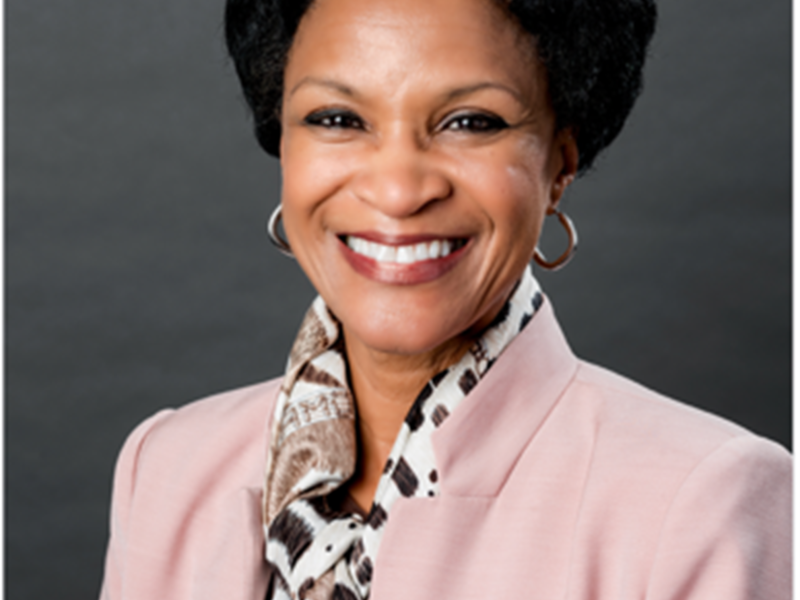
Like many girls talented in math and science, Denise Gray aspired to be a math teacher. “Then in middle school, my math teacher Mr. Oliver told me I should be an engineer — and that I should go to Cass Tech,” she says.
That advice changed her life. She did enroll at Cass Tech, a leading math and science public school in Detroit, and she did become an engineer. And today she is president of LG Energy Solution Michigan’s Tech Center, working on the South Korea-based company’s battery business. In 2020, she was named one of Automotive News’ 100 Leading Women in the North American Auto Industry.
Gray joined LG Chem in 2010, after nearly 30 years at General Motors. She actually started her GM career as a high school junior; Cass Tech and GM had a vocational program offering students a half-day of school combined with 20 hours of work each week at the GM Tech Center. After high school, Gray went to the GM Institute (now Kettering University) to earn her bachelor’s degree while working part time at GM. “It was a blessing to earn my way through school; my family couldn’t afford to send me to college,” she says.
She says she is grateful for her years at GM, which gave her the chance to travel, to work with people around the world and — maybe most importantly — to work on the emerging battery technology that would change the auto industry. After nearly two decades at GM, she became the executive responsible for battery technology, on the team that birthed the first-generation Chevrolet Volt. “It put me in a leadership position in a technology that was just about to burst — the electric vehicle business,” she says. “At that point it was a small group working on EV technology; it still felt sort of like a science project. But the company put faith in me.”
For Gray it also was a chance to get to know the top company leaders, and to experience “everyone pulling in the same direction — media, government, so many influential people were working on this. And we did it! It was so exciting to contribute at the highest level.”
“I have always been different,” she says. “I’m a woman and I’m Black, I work on software and electronics in a white, male, mechanical world. I have recognized the differences but have learned to adapt.” She says her mother was a role model, as a single mom and a woman working on the manufacturing line. “She had to be adaptable,” Gray says.
Gray’s family taught her how to be goal-oriented, including: “Don’t let the naysayers distract you from that goal,” she says. “There were lots of people who were not helpful, who didn’t want you to succeed — but I expected people to put roadblocks up. I learned from my mom and dad that you had to create plan A and B and C and D to get around the roadblocks.”
She believes the industry would benefit from the perspective and life experiences of more women of color. “We need women of color to share their experiences and help create solutions to make the world a better place,” she says. “How could you make things better for your own life? If you think about that, then those things can be invented.”
She credits a mentor, a GM boss, for demonstrating the value of diversity and inclusion. “He would have big roundtable discussions, including people with different views and different skill sets, and ask everyone what they thought. It gave me confidence and served as an example of how I wanted to operate,” she says. “He taught me that I’m not looking for people with the same background, but diversity of thought — people who complement me.”
Gray says she tries to promote STEM careers — including, in the past, coming home from the lab wearing the white coat, to expose people to what an engineer does. “It’s not like being a conductor on a train, or having a wrench in your hand,” she says. “Engineers are creators and inventors and problem solvers.”
She is passionate about encouraging young people to consider careers in math and science, and engineering. “We don’t have enough tech-oriented people in the U.S. — no matter what gender or color,” she says. “I was going to be a teacher until someone said, ‘You should consider engineering.’ We need more people to say that to young people who are good at math and science.”

